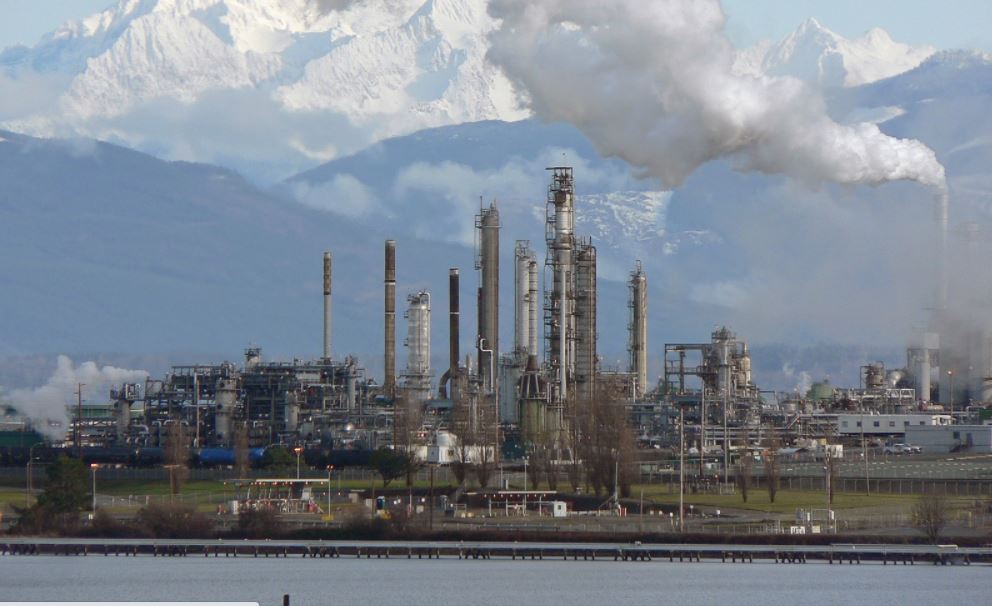Wednesday saw a Dutch court take Shell to task on greenhouse gas emissions, an activist investor staged a coup, installing green-minded board members at ExxonMobil and Chevron shareholders pushed for a carbon-cutting plan.
Interestingly, in court, Royal Dutch Shell argued that global emissions were not subject to Dutch law, saying that the plaintiff’s “claims were a matter for lawmakers and that the company was acting lawfully and its emissions were permitted,” according to Reuters.
However, Michael Burger, a litigation specialist who represents local U.S. governments in climate cases points out that while the court’s decision was based on Dutch law, “the duty to care” is the same in legal systems around the world.
And this “duty to care” has trickled down to the public, and it is evident around the world as people experience first-hand the impacts of the climate crisis.And right now, today, we as a planet, have a duty to see that greenhouse gas emissions are reduced – because the planet is at risk as is our very lives.
Ars Technica reported on a German court ruling last month that struck down part of the nation’s sweeping climate law, saying it violates people’s freedoms. But it is not what you may think.
Germany has already cut 35 percent of its carbon pollution, leaving another 20 percent to be cut over the next nine years. And that’s where the court found fault with the law, saying that it left too much of the burden to future generations.
“The regulations irreversibly postpone high emission reduction burdens until periods after 2030,” the Constitutional Court wrote in a release explaining the ruling.

Three Exxon refineries top the list of U.S. polluters
It is a fact that oil and gas production disproportionately impact on poor and minority communities. These communities are often located close to industrial sites. And small particulate matter is the most harmful pollutant in these neighborhoods, responsible for breathing problems, and damage to the heart, lungs and nervous system.
“Particulate matter pollution is deadly, but you’re not going to see it written on anyone’s tombstone,” said Eric Schaeffer, executive director of the Environmental Integrity Project, a Washington D.C.-based watchdog group.
The EPA requires plants to restrict small particulate matter emissions to 1 pound or less for every 1,000 pounds of coke burned in a refinery’s catalytic cracking units. But there’s a catch. Exxon’s Baton Rouge plant is the only major U.S. refinery that doesn’t have to meet this requirement.
This is because the EPA has a rule that exempts “cat crackers” that were built before 1976 and haven’t been modified since. Exxon’s plant emissions of small particulate matter hit a peak of 350 pounds per hour during an independent test conducted in January 2020 by an engineering firm Exxon hired to demonstrate its regulatory compliance.

The Louisiana Department of Environmental Quality (LDEQ), as do environmental quality departments in other states, sets its own emission standards, and Louisiana has some of the highest limits in the country. In this case, the LDEQ limit for small particulate matter is set at 234 pounds per hour, quite a difference from the EPA’s standard of 1 pound or less for every 1,000 pounds of coke burned every hour.
And this is just one Exxon refinery in Louisiana. The Texas-based firm’s three largest refineries – two in Texas and one in Louisiana – are the nation’s top three emitters of small particulate matter, according to federal regulators.
More than 530,000 people live within three miles of the 13 refineries with the highest emission levels in 2020, with 57 percent being people of color and 43 percent living below the poverty line, according to a report by the Environmental Integrity Project, “Environmental Justice and Refinery Pollution.”
Things won’t be the same after this week
We could call this past week a disruption, but that may be too simple an explanation for what has happened in the way companies, investors, and the public view big oil today. You could say the world has had an awakening.

Over the last few years, several Western oil and gas majors have rebranded, transitioning away from integrated oil and gas companies to integrated energy companies. Statoil is now Equinor, Danish Oil and Natural Gas are now Orsted, with most of its portfolio, focused on offshore wind and renewable energy.
The urgency of the emissions situation is real, and what is happening with our climate can’t be underestimated. The most recent IEA report calls for a halt in oil and gas production in the next year for the world to meet 2050 net-zero targets. But that leaves a big question unanswered – Will the petroleum industry heed the warning?
Fossil fuel companies will keep on producing for as long as countries keep buying – that’s a given. But the good news is that the world is moving closer and closer toward decarbonization, according to The Hill. It will still take some time, and we can’t give up.














